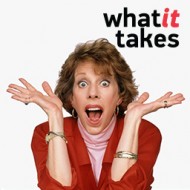I thought, this is what I want for the rest of my life, to make people laugh.
Carol Burnett was born in San Antonio, Texas but spent most of her early years living with her grandmother in Los Angeles. Her parents divorced when she was young, and both her mother and father fell prey to alcoholism. Times were hard, and Carol and her grandmother lived in a small studio apartment in Hollywood. By her own account, it was a life with few luxuries, but her grandmother took her to the movies every week, and young Carol absorbed a wealth of characters and situations she would later mine for comic gold.
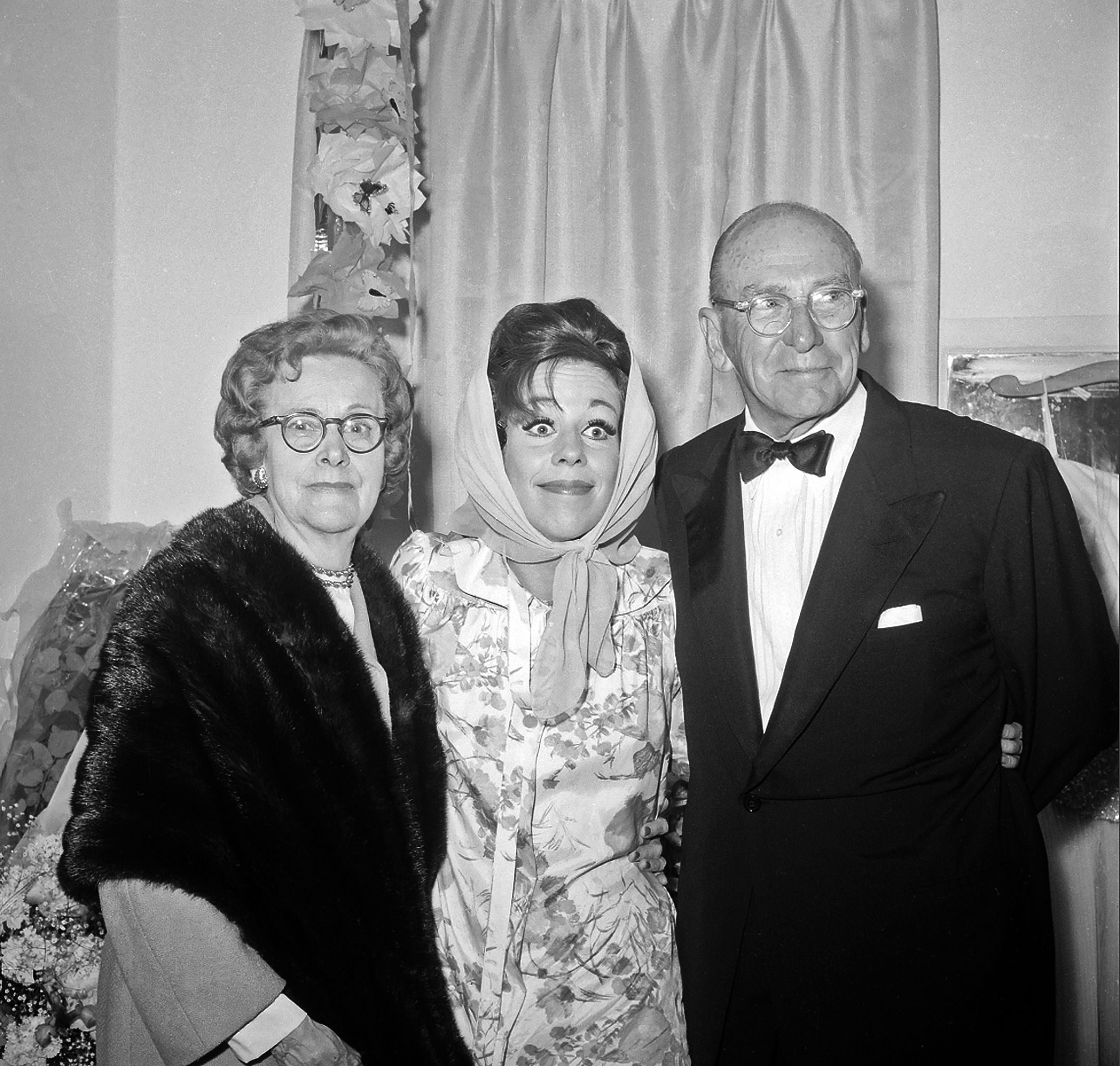
Carol did well in her studies at Hollywood High School. She planned to fulfill a thwarted dream of her mother’s and become a journalist. Although the University of California system offered extremely low tuition to in-state students, Carol could not afford to enroll at UCLA until an anonymous donor supplied her with the $50 she needed.
In a college theater arts class, she discovered the joys of performing for a live audience. She excelled in college musical and variety performances and learned that she loved making an audience laugh more than any work she had ever tried. She imagined herself on the Broadway stage, in a musical directed by the master showman George Abbott. In her sophomore year, a successful businessman who had seen her perform at a party offered her an interest-free loan to try her luck in New York; when the school year ended, she crossed the country in pursuit of her dream.
In New York, Carol lived at the Rehearsal Club, a boarding house for single actresses. Soliciting material from undiscovered writers and composers, she staged a revue with her roommates and began to make a name for herself in the theater world. For two summers, she worked at the mountain resorts that had long served as a proving ground for young talent. The routine at these vacation spots, Green Mountains in the Adirondacks and Tamiment in the Poconos, was a grueling one, but excellent training for a performer. Carol Burnett’s powerful singing voice, warm personality and undeniable comic talent attracted the attention of the writers and composers who supplied the resorts with material.

In the 1950s, New York was still the center of live television, and Carol Burnett began appearing on comedy and variety programs as well as in nightclubs. In the song “I Made a Fool of Myself Over John Foster Dulles,” she sang the charms of President Eisenhower’s mature and distinctly unromantic Secretary of State. The number was a hit with audiences, and she was invited to perform it on both The Jack Paar Show and The Ed Sullivan Show.
In 1959, she was cast in the new musical Once Upon a Mattress. Originally developed at Tamiment, the show was a broad comic take on the fairy tale of “The Princess and the Pea,” and Burnett dominated the show as the gauche but warm-hearted Princess Winifred. The director was the famed George Abbott, nicknamed “the apprentice’s sorcerer” for his unparalleled track record of launching new talent. Although the show opened in a small theater off-Broadway, it was a hit with audiences and soon transferred to a Broadway house. Burnett received a large share of the credit for the show’s success, and while it was still running on Broadway she began the first of four seasons on The Garry Moore Show, a popular evening comedy and variety program. Burnett won her first Emmy Award for her work on the show.

At this time, she met and became friends with another rising Broadway star, Julie Andrews. Their contrasting personalities — the reserved and elegant Englishwoman and the brash and informal American — made for a winning combination on stage. A 1962 concert performance, Julie and Carol at Carnegie Hall, was broadcast live on the CBS network in prime time and won two Emmy Awards, one as the year’s best music program and another for Burnett’s performance. The director of Julie and Carol was her producer from The Garry Moore Show, Joe Hamilton. Their working relationship led to a romance outside of the television studio and they were married in 1963.
Following the success of Julie and Carol, CBS signed Burnett to a ten-year contract, for one special and two guest appearances per year. She made guest appearances on comedy and variety programs such as Get Smart, The Smothers Brothers Comedy Hour, Gomer Pyle and The Lucy Show, and starred in television productions of Once Upon a Mattress and Calamity Jane. A return to Broadway, as the leading lady of the new musical Fade Out, Fade In, led to disappointment when a cab she was taking to the theater was involved in an accident. Burnett recovered from a neck injury but was unable to perform while she was recuperating. The box office suffered in her absence, and though she returned to the show, she soon left again to accept the offer of a regular television series. The Entertainers, a variety show teaming Burnett with comedian Bob Newhart, failed to draw a large audience and was canceled after a single season.

With a growing family to support and a new house to maintain, Burnett and Hamilton decided to exercise an overlooked clause in her contract, and held the network to its commitment to produce and broadcast 30 one-hour variety shows with her. At first, CBS executives balked at allowing her to host the program, believing that only male stars could successfully host variety programs, but Burnett stood her ground, and the first episode of The Carol Burnett Show was broadcast on September 11, 1967.
The show featured a full orchestra, dancers, and a regular cast of supporting comedians, including Harvey Korman, Vicki Lawrence, and later Tim Conway. Guest stars included contemporary popular entertainers, as well as many of the Hollywood stars Burnett had admired since childhood. Many shows began with an unrehearsed question-and-answer session between Burnett and the studio audience. In addition to musical numbers featuring the star and her guests, the show typically included skits parodying contemporary soap operas and old movies like those a younger Carol had enjoyed with her grandmother. Other segments portrayed a host of recurring characters, including a distinctly dysfunctional family dominated by a savagely critical mother.

The Carol Burnett Show ran for 11 seasons, received 25 Emmy Awards, and was watched by an average of 30 million people every week. In the mid-’70s, it was the cleanup hitter for CBS’s unrivaled Saturday night lineup of All in the Family, Mash, and the Mary Tyler Moore and Bob Newhart shows. In 1972, ’74 and ’75, the program won the Emmy Award as the year’s best variety show. Carol Burnett herself received five Golden Globe Awards as the best actress in television comedy for her work on the show. In later seasons, ratings dipped, and the network experimented with different time slots as original cast members left and were replaced. In 1978, CBS was willing to extend the program for another season, but Burnett decided to end the series after the 11th season.
During the run of The Carol Burnett Show, she had appeared in two feature films, starring opposite Walter Matthau in the 1972 comedy-drama Pete ‘n’ Tillie, and in Billy Wilder’s 1974 remake of the classic newspaper comedy The Front Page. With the end of her weekly television series, Burnett was free to appear in more feature films, including The Four Seasons (1981) and as the villainous Miss Hannigan in John Huston’s film version of the Broadway musical Annie (1982).
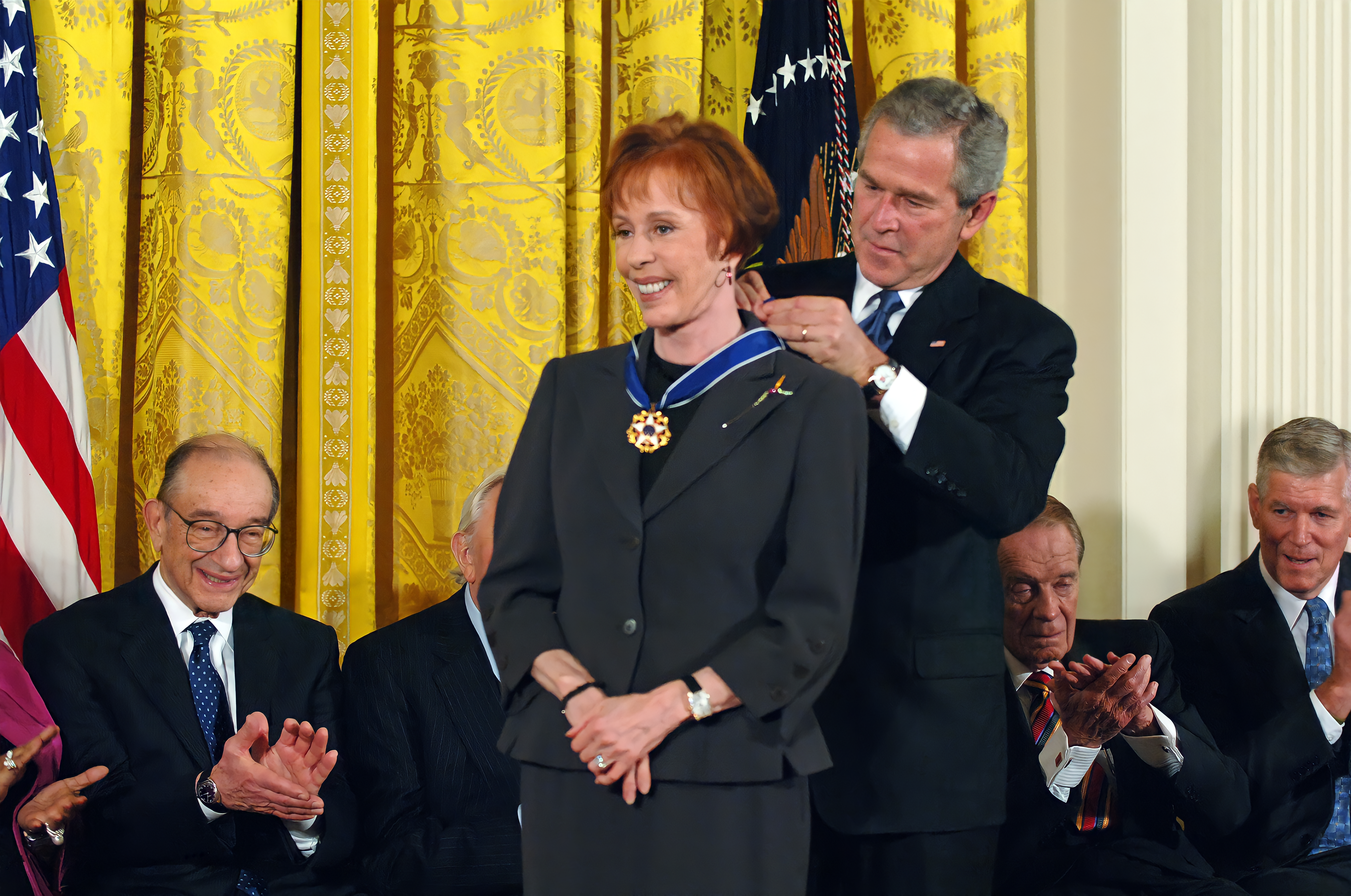
Burnett won critical acclaim for her dramatic performances in the television films Friendly Fire (1979) and Life of the Party: The Story of Beatrice (1982). In the 1980s, she appeared regularly on the comedy series Mama’s Family, a spinoff of the family sketches on her variety show, and starred in the comedy miniseries Fresno. In 1984, Burnett’s 20-year marriage to Joe Hamilton ended in divorce. She remained active in television while spending much of her time writing. Her 1986 memoir, One More Time, became a national bestseller. In the following decade, she won another Emmy Award for her recurring role in the comedy Mad About You. She returned to Broadway in 1995, starring in the comedy Moon Over Buffalo, and again in the 1998 revival of Putting It Together, a revue of songs by Stephen Sondheim.

In 2001, Burnett married musician Brian Miller. She remained devoted to her three daughters from her previous marriage and enjoyed a particularly close relationship with her oldest daughter, Carrie Hamilton, who shared her interests in acting and writing. The two collaborated on a play, Hollywood Arms, based on Burnett’s childhood. Carrie Hamilton died of cancer in 2002, four months before the play’s opening in Chicago, a devastating loss for her mother. The Chicago production, directed by Harold Prince, was well received and soon transferred to Broadway. The bittersweet success of Hollywood Arms was followed by one of the greatest honors of Carol Burnett’s distinguished career. In 2005, President George W. Bush presented her with the Presidential Medal of Freedom, the nation’s highest civilian honor.

Carol Burnett has continued writing as well as performing. In 2012, she published a second volume of memoirs, This Time Together: Laughter and Reflection. She paid tribute to her daughter in the 2013 book Carrie and Me: A Mother-Daughter Love Story. That same year, Carol Burnett received the Kennedy Center’s Mark Twain Prize for Humor. In 2013, the intersection of Hollywood Boulevard near her alma mater, Hollywood High School, was designated by the City of Los Angeles as Carol Burnett Square.
In 2018, at age 85, Carol Burnett returned to television in A Little Help with Carol Burnett. In the Netflix series, Burnett moderates a panel of children, ages five to nine, who advise adults on their problems. The issues the adult guests bring to the program are pre-determined, but the children’s responses — and Burnett’s reactions — are entirely spontaneous. More than 60 years after her first television appearances, Carol Burnett is still bringing the precious gift of laughter to homes across America.
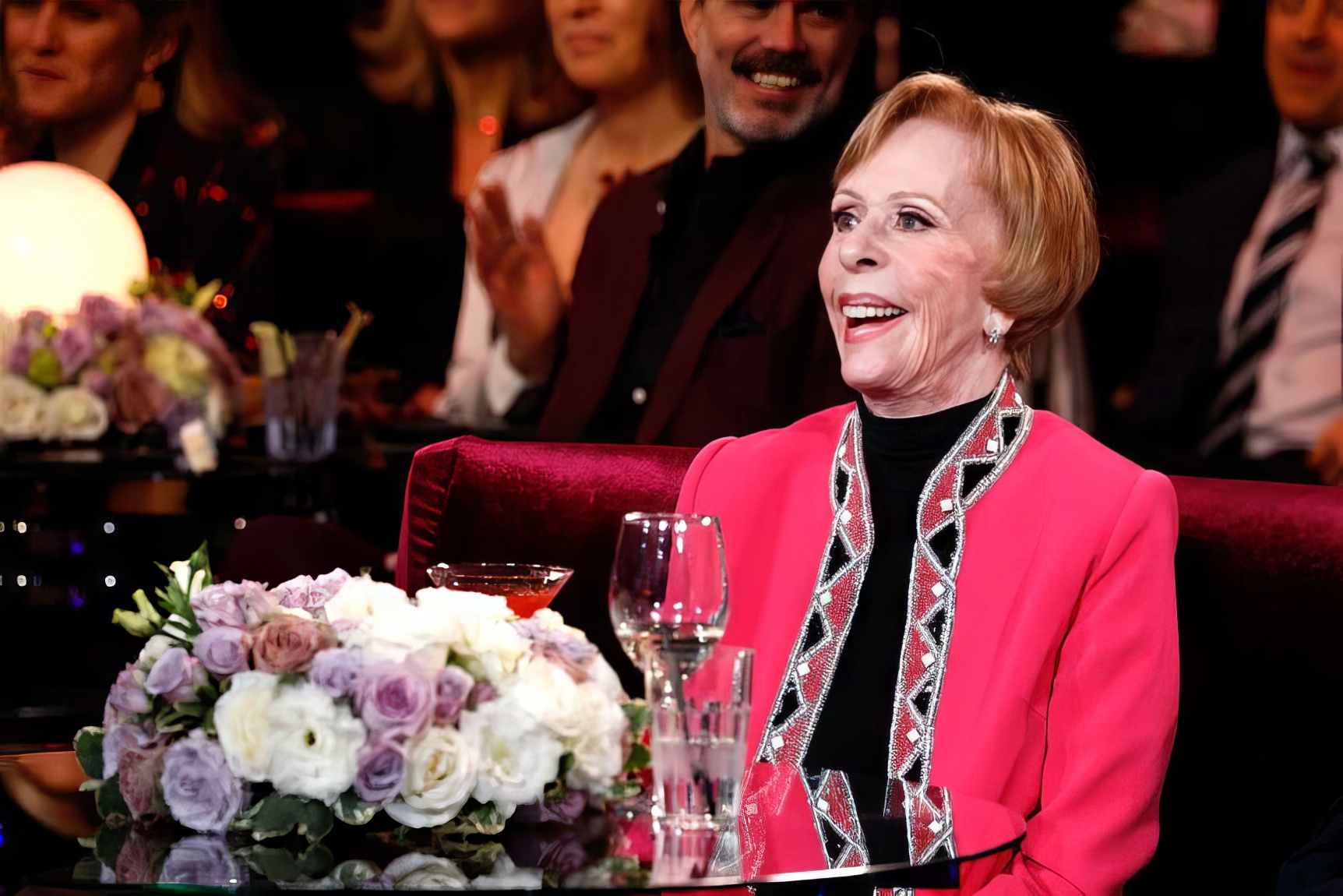
In the closing weeks of 2018, the Hollywood Foreign Press Association announced the creation of a Carol Burnett Award for lifetime achievement in television, both on and off camera, to be presented as part of the annual Golden Globes ceremony. The first Carol Burnett Award will be presented to Miss Burnett herself, at the 76th annual Golden Globes award ceremony in January 2019.
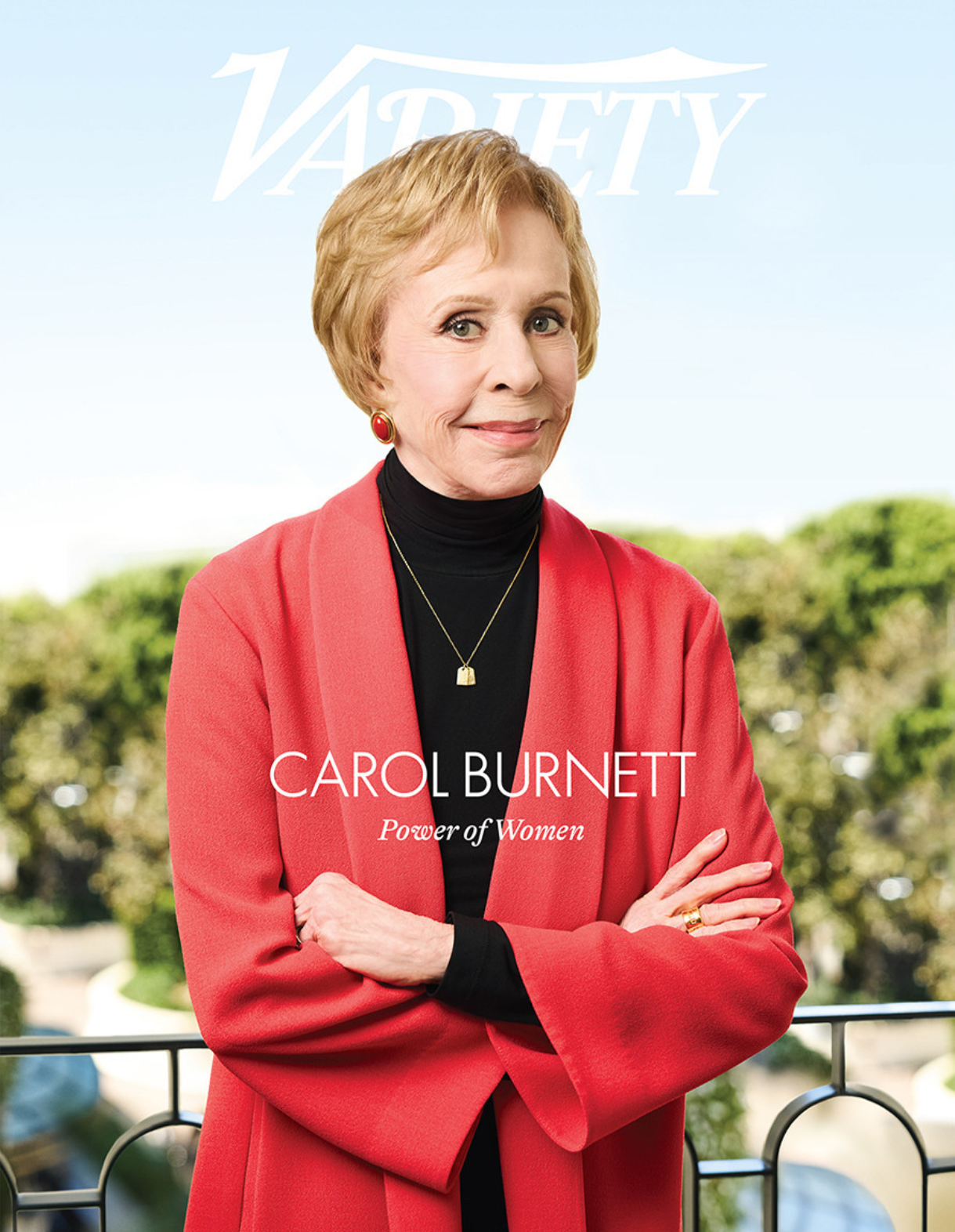
Honored as one of Variety‘s Power of Women in 2024, Carol Burnett graced the cover of the magazine’s special issue, celebrated for her indelible impact on television, film, and theater and her passionate advocacy for medical research. At the October 23, 2024, ceremony, she advocated for the Hereditary Disease Foundation, reflecting her commitment to combating Huntington’s disease and other neurological disorders. Burnett has embraced roles that challenge and invigorate her, such as her recent performance as Norma Dellacorte in Apple TV+’s Palm Royale, where she played a conniving aunt embroiled in family intrigue over an inheritance. At 91 years old, she continues to seek roles that promise fun, embodying her philosophy that “if it looks like it’s going to be fun, I want to do it.”

For 11 consecutive seasons, 30 million Americans sat down every week to watch The Carol Burnett Show. In sketch after sketch, the star poked fun at her favorite films, punctured the pretensions of the famous, and drew forgiving humor from the embarrassments and misunderstandings that arise in every family.
The most honored comic actress of our times, Carol Burnett was raised by her grandmother in a small studio apartment in Hollywood. A starring role in the Broadway musical Once Upon a Mattress led to regular appearances on network television. In 1967, she inaugurated her weekly comedy-variety program. In its original run on CBS, The Carol Burnett Show amassed 25 Emmy Awards. Since then, Burnett has written three bestsellers, as well as a Broadway play, Hollywood Arms, based on her childhood experiences.
She starred on television in two subsequent comedy series, as well as the dramatic film Friendly Fire, and continues to make guest appearances on popular programs including Glee and Law and Order: SVU. She returned to Broadway in shows such as Stephen Sondheim’s Putting It Together and has acted in numerous feature films, working with directors Robert Altman, John Huston and Billy Wilder. In addition to her Emmy Awards, Golden Globes, and Kennedy Center Honors, Carol Burnett has received the Mark Twain Prize and the Presidential Medal of Freedom, the highest honor that America bestows upon its citizens.
Could you tell us how The Carol Burnett Show came about?
After I was leaving The Garry Moore Show, I signed a contract with CBS for ten years. And there was a clause in the contract that has never been before — and certainly won’t be afterwards — that if within the first five years of the show, if I wanted — if I wanted — to do 30 one-hour shows on television, variety shows, they had to put it on whether they wanted to or not. Well I said, “I’ll never want to do that. I can’t be a host of a variety…” I never thought it. So five years were coming up, and it was the last week that that clause could work, the fifth year. And my husband and I just put a down payment on a house in Beverly Hills and I had a baby — two babies — and we said, “Maybe we ought to push that button.” So picked up the phone and called New York and I got one of the vice presidents of CBS on the phone. “Merry Christmas, Carol. How are you? Happy New Year.” It was that week. I said, “Well, I’m calling because I want to push that button.” And he had no… he said, “What button?” And I said, “You know, where I can do…” and he said, “Oh. Let me get back to you.” So I’m sure he got a lot of lawyers at Christmas parties that night, called me back the next day, and he said, “Oh yeah, I see, Carol. Well, variety, it’s a man’s game. It’s Gleason, it’s Milton Berle, it’s Sid Caesar, it’s Dean Martin.” He says, “I mean, you gals, it’s not for you. We’ve got this great sitcom we would love you to do called Here’s Agnes.” Can you just picture it? Here’s Agnes! I can just see it now. And I said, “No, variety is what I love, music. I want a rep company like Sid Caesar had. I want dancers, I want singers, I want guest stars. I want to do sketches, I want to do different characters.” And they had to put it on and they didn’t want to. And they thought we would bomb. I didn’t know. All I knew is we had 30 shows, pay or play. And it was 11 years.
One of the greatest shows in the history of television. You had an amazing group of talent.
Carol Burnett: Yes. And I don’t like the term second banana. That’s a term used as someone who supports the — quote — star. Ours was a true rep company. There were no second bananas. There were sketches that we did where Harvey would shine, where Tim would shine, where I would shine, where Vicki would shine. So it was a rep company.

You used to start your show by taking questions from the audience — Q&A. How did that come about?
Carol Burnett: That was part of my variety show.
Garry Moore, when I was on his show way back, he used to open the show — but not tape it, not be on tape — but he would warm up the audience by doing Q and A. And I heard him, he was just wonderful with it. So when I was going to do my show, it was suggested not to get one of those guys who come out and tell jokes and warm up the audience before you start to tape, but come out so that the audience sees me as I really am before I start putting on the fat suit, and blacking out my teeth, and the wigs and the different characters, but be Carol and do Q and A. But then they suggested taping it, and I was a little worried about that, again, because I wouldn’t know — and I didn’t want a plant. I didn’t want anything that I would know, because I wanted it to be off the cuff, and if I had egg on my face, that’s the way it would be. So the first show I went out and I’m like, “Any questions?” First of all, I was afraid nobody would ask anything, and then I was afraid they would. But it started to catch on after we were on for about three or four weeks, and people came ready to ask questions and do things. So it became a lot of fun, because it was total improv, but the audience was my partner.
Did you study improv?
Carol Burnett: No, I didn’t study anything. It was just doing, doing it.
That is fantastically creative. You’re almost creating the show on the spot.
Carol Burnett: Yes. The whole show wasn’t created on the spot, but that part was. And then I insisted that we keep taping, because we had a studio audience there. I didn’t want to keep them waiting because, again, they are our partner and they feed us with their laughter. So if they’re bored sitting there waiting for costume changes and scenery changes, we’re going to lose them. So I used to have a bet with the stagehands that I could do a skin-out change.
What is that?
Carol Burnett: That is strip down, get changed, put a wig on, change makeup, everything, before they could change the scenery and move it. So we did it as if it were a live show. So if something would go crazy, we kept it in, unless the scenery fell down and knocked one of us out. That’s why sometimes Tim would go off on a roll and — poor Harvey — we didn’t know what Tim was going to do, so we just rolled with it.
Sometimes you cracked up.
Carol Burnett: Oh yeah, and it was honest. It was never on purpose.
Again, that is fantastically daring. Where do you think that courage came from?
Carol Burnett: I think live theater. So many of us who did our show came from live theater. So it was like, “Okay, you’ve got to really be thinking on your feet and just go with it.” The audience loves it when something like that happens. Although Harvey — and we prided ourselves on being trained theatrically — but there were times, it was like giggling in church or the library.
You went on to do a lot of films and to do your own shows, traveling. It seems like you probably could have retired at some point, but you keep going.
Carol Burnett: Well, I like to feel like I’m the Energizer Bunny, but not quite. I think it’s important for your brain, for everything. I don’t do a whole lot, but I keep busy.
You still take questions from the audience.
Carol Burnett: Well, I go out and I do questions and answers on the road. I’ll go to different venues, theaters, so forth. I don’t get up and do a one woman show. I throw it open to the audience, and they ask me questions. I don’t know what they’re going to ask. It’s all random, nothing is prepared. So the old gray matter has to be ticking. That’s being in the now. You can’t be thinking about tomorrow or yesterday if somebody is asking a question and you have got to come up with an answer. And when an answer lands, when I get a good laugh or a response out of it, again, that’s that high.
Most of us would be terrified to go into a theater and not know what is going to come out of your mouth.
Carol Burnett: It is a little terrifying, because I am only as good as the audience. Sometimes if they are just kind of sitting there or just not really asking fun questions, I have to tap dance around and I have developed certain stories as a result of some of the questions I’ve been asked about Tim Conway and Harvey and Vicki Lawrence and so forth. So I can bring it back to that to kind of stir them up.
The weirdest question I ever got was a few years ago in Texas. Many years ago, so remember that. Many years ago, maybe ten years ago, I was in Texas and a lady in pink up in the balcony was raising her hand. She said, “Carol, if you could be a member of the opposite sex for 24 hours and then pop back into being yourself again, who would you be and what would you do?” And I thought, “Oh my, and the audience started to titter and laugh.” And I said, “Okay God,” to myself, “I don’t know. I’m going to open my mouth, and whatever comes out, God, it is going to be your fault.” I swear, I opened my mouth, and what came out was, “I would be Osama bin Laden and I would kill myself.” And I said, “Thank you, God.”
So that wasn’t that long ago.
Carol Burnett: No.
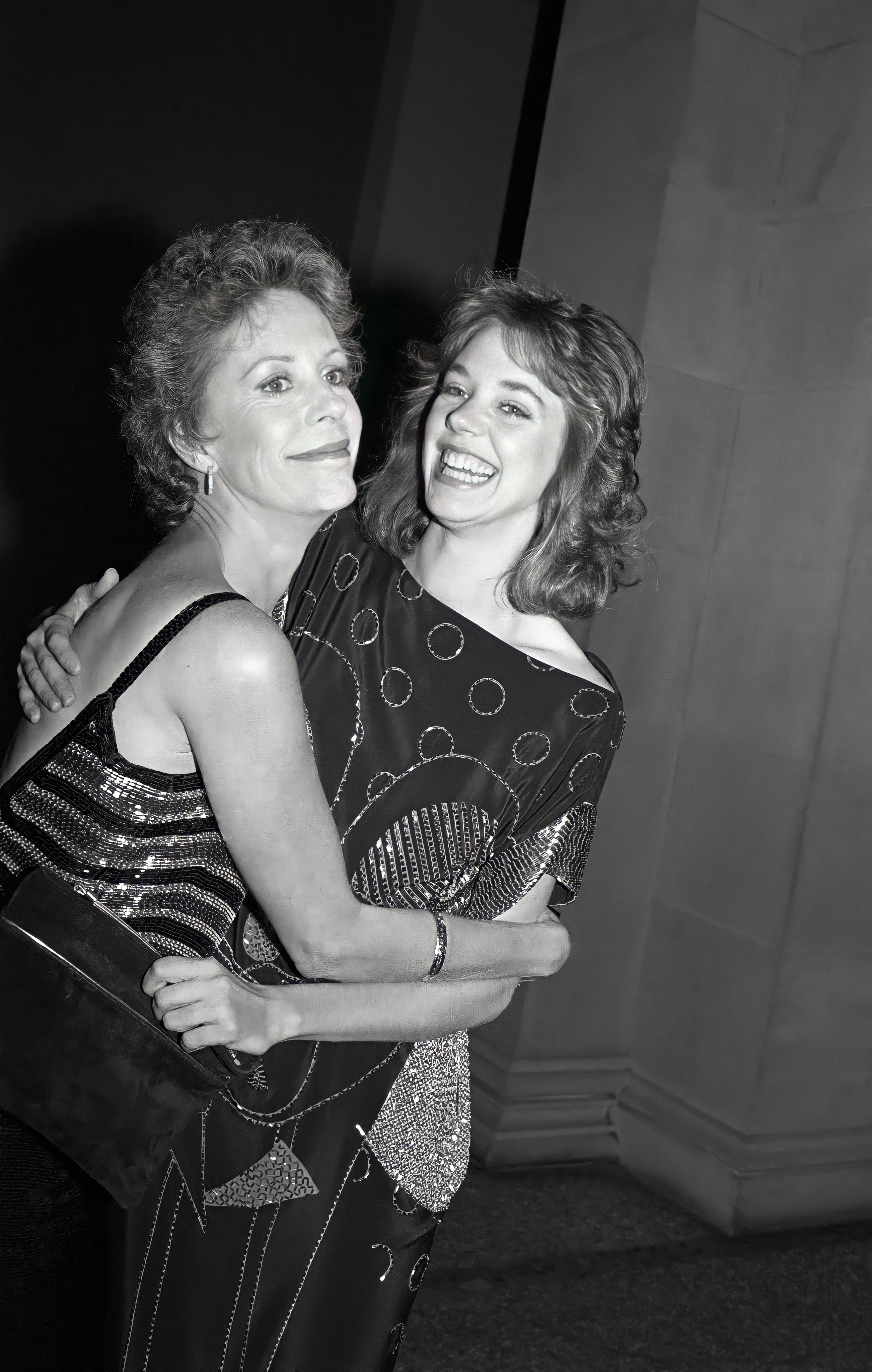
|
We understand that you were born in San Antonio, Texas, and that Carol Burnett is actually your real name. Carol Burnett: Yes. Carol Creighton Burnett. My mother’s maiden name was Creighton. Isn’t that rather unusual in show business, to have your given name as your stage name? Carol Burnett: Actually, I wanted to change it at one point to Carol Creighton, because I thought that sounded good. But then I realized if I ever was successful, I wanted a boy in school — his name was Tommy Tracy, I was in love with him in junior high school and high school — I thought, “Well, if I am ever successful, I want him to know.” So I kept my real name. Did he find out? Carol Burnett: Oh yes. How did you come to live with your grandmother? Carol Burnett: My parents in San Antonio moved to Hollywood, California to follow a dream. My mother wanted to be a journalist, a writer, and interview movie stars, like Louella Parsons and Hedda Hopper did. So they came out here and then they stayed. I stayed with my grandmother in San Antonio. Then my parents got divorced, so I just hung in there with my grandmother. I remember we were on the WPA at that time. The Works Project Administration? What did it mean to be on the WPA at that time? Carol Burnett: It meant that we were poor. Every week somebody would show up and give us a chicken to fry, and hand-me-down clothes for me to wear. It was fine, but it was the Depression, so everyone we knew on our street, and in a block, in the area, we were all in the same boat. So it wasn’t like I felt deprived. We ate, and I had clothes, and I went to school. What was your grandmother like? |
Carol Burnett: She [my grandmother] was a hypochondriacal Christian Scientist. She was a character. She loved me more than anything and she was my rock. I found out years later that she had been married six times, but she only told me about three. I was writing a book and I did some research and boy, found out she was quite the swinger. But we went to the Christian Science church, and I went to the Christian Science Sunday School, but my grandmother was always complaining about her heart skipping beats and that she didn’t know if she was going to live another day. So see, in Christian Science you are supposed to, what they call, “know the truth” and the truth is there is no sickness, there is no death. So I would be talking about, as a kid, she would be feeling her pulse and everything, and I would be knowing the truth for her. And then if I didn’t know the truth well enough, she would ask me to get the medicine for her. So that is what I mean, a hypochondriacal Christian Scientist. But that’s who she was.
Did you have a relationship with your parents?
Carol Burnett: Not a good one.
My dad was an alcoholic from the get-go, from high school on. But he was like a drunk Jimmy Stewart. Sweet. There was never a nasty, mean bone in his body. He just had that disease and was the kindest, most loving man I had ever known. My mother became an alcoholic a few years later, and then my grandmother and I moved out to Hollywood to be with my mother. And we moved in the same building. She was down the hall, and Nanny and I had a one-room, pull-down-bed apartment right facing the lobby of the building. So I would see my mother. Her dreams were shattered. She never really made it. She did get to interview a few of the people. I remember that she had an interview with — she free-lanced for awhile — with Bob Hope, with Rita Hayworth, George Montgomery, people like that. But she never could hold down a job, and she was frustrated and she started drinking. But when she was sober, she was a lot of fun. She was beautiful, and my dad was handsome, and they made a gorgeous couple, and they were still friendly after the divorce. But I remember Mama coming down the hall, and Nanny and Mama and I would sit in this little kitchen, and Mama would play the ukulele and we would sing. She had a great ear for music and she could do harmony just — so I would take the lead, Nanny would do the third part harmony, and Mama would do the intricate stuff.

